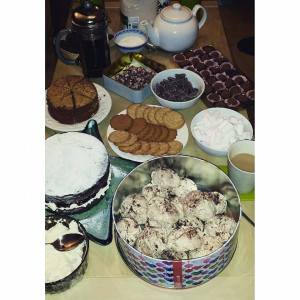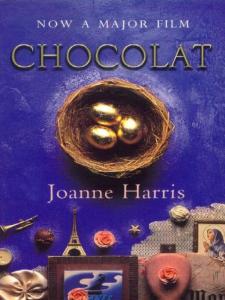
In some ways I was dreading this discussion, knowing there would be the inevitable comparison between book and film. Being a book lover first and a film lover, well, last, I knew I would have to listen more and contribute less. Not a strong point!
Only 2 out of 16 of us liked the book better than the film, including me! The reason the two of us liked the book, was simply that there was more depth than the film. Others thought the book a mere ‘holiday read’. Most agreeing that Armande was the best character and admired her determination to decide how to live and of course, ultimately, how to die.There was, however, divided opinion about the Priest. This was largely influenced by the film not adhering to the story in portraying what was in the book- a very troubled man. He was heavily influenced by his childhood shock and betrayal and by the strict upbringing, training and work of his role, with the inability of his mentor to advise and direct him. He lacked supervision, accountability and…love. He rejected true friendship, preferring to seek, expect and demand respect in his authority by being the moral judge of all the intimacies of the lives of his flock, regardless of their faith, or lack of. Towards the end, his mental anguish became uncontrollable by enforced starvation.
Most in the group agreed he had mental health issues and quite probably suffered from a minor breakdown. Personally I would have liked to have discussed, in more depth, the reasons for this including the issue of sin, redemption, penance and punishment. It seems the author is a self-confessed ‘Priest bater’. She certainly portrayed the dark side of religious hypocrisy.
Many disliked the witchcraft aspects of the book, including the imaginary friend. Some thought it too far- fetched, others thought it weird, and some members had knowledge of tarot cards and disputed parts of the story. I suspect the author researched well, and was accurate and I would have liked more discussion on the effects of witchcraft. However, all agreed that Vianne’s ‘Mother’ was disturbed and Vianne was lucky to have not directly inherited this; only the experience, skills and the passion for chocolate. This was an interesting twist to the story of their relationship that could have been explored further in light of her love for Armande.
Favourite quote ‘does he know you’re a witch?’ ‘Takes one to know one!’
The book, some believed, set out to portray ‘Witchy’ people as good (compassionate and far seeing) and Church People as bad (controlling and condemning). Quite possibly this was the intention of the author which was fulfilled.
More negative criticism was that it lacked story; there were no strong male characters making it too ‘airy-fairy’. The mix of reality and magic was not appealing, it was slightly boring, and the lack of moral behaviour at the end (Vianne sleeping with Roux, and becoming pregnant whilst knowing he was her friends lover) was not appreciated. Very little was mentioned of the racism (against the travellers) and domestic violence (against Josephine).
On a more positive note, it was clear that chocolate was addictive (our mouths drooled with the detail). It was noted that the story deliberately took place during Lent (coinciding with pagan Carnival time) and this was the main reason for Reynaud’s objections (aside from envy, gluttony, promiscuity, etc).
Vianne helped a lot of people to have courage in themselves and to have some enjoyment and independence.
It was acknowledged that there is a time struggle with the isolation of rural villages, allowing for extremism and lack of modern freedom. An example was given of rural Scottish Highlands where the Church is still the dominant force and authority in the life of the villagers.
Generally the character descriptions were appreciated, and there were no grey areas on like and dislike! The main contention came from the mix of reality and fantasy. It is hard to determine how much influence the film had on this debate.
Personally I discovered that my appreciation of the book as literature was not one of liking the subject matter, but in the literary style of the writer and her skill in introducing so many aspects of life – from the relationship of man and dog, to the dogmatism of the church. Racism, morality, cruelty, passion, love, compassion, power struggle, witchcraft, death, rebirth, hate, envy, hypocrisy, disturbed mental health, childlikeness, relationships, and…chocolate! I didn’t skim a single word.
(Written by Liz Thatcher.)

